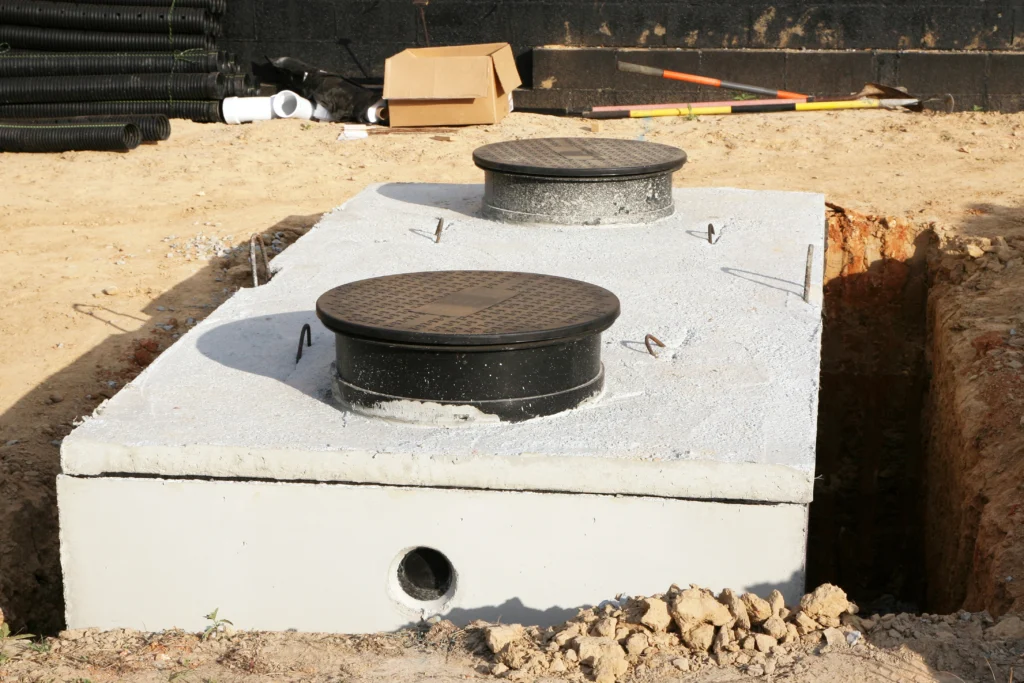In the realm of wastewater management, small septic systems, also known as alternative or novel systems for septic, are emerging as crucial solutions for those who live in areas with limited space or challenging terrains. They are designed to achieve maximal space efficiency and also to be able to accommodate a wide range of soil types, while also ensuring effective waste treatment as well as protection for groundwater. We’ll look at the advantages of these systems as well as the latest technologies they employ.

Small Septic Systems are Essential
When it is time to install septic systems that require large amounts of land, those who have smaller areas face a lot of issues. In these cases, just picking a small septic tank may not suffice to properly manage household wastewater. Small septic systems that are well-designed can solve these problems by offering advanced and space-efficient solutions.
Alternative Septic Systems are Ideal for small Lots
Optimized Space Utilization A standout features of small septic systems is their slim design which enables them to be installed within small areas. This is particularly beneficial for those with smaller lots as they do not require the vast space which traditional septic systems do.
Advanced Waste Treatment Alternative septic uses cutting-edge treatments to ensure an efficient waste removal. For instance, aerobic treatment units (ATUs) introduce oxygen into the process of treatment encouraging the growth of aerobic bacteria that break down organic matter faster than anaerobic bacteria used in conventional systems.
Environmental Safety: These systems are designed to safeguard the environment by preventing groundwater pollution. Drain fields and advanced treatment techniques ensure that the wastewater is treated and filtered prior to release back into the environment.
Flexible to a variety of soil conditions The alternative septic systems are flexible and can be adapted to function efficiently in various soil conditions, such as clayey, sandy or rock. This flexibility makes them suitable for a range of geographical areas and environmental constraints.
Types of Alternative Septic Systems for Small Lots
Aerobic Treatment Units – ATUs utilise oxygen to help accelerate the breakdown of organic matter that is found in wastewater. Compact dimensions and a superior capability for treatment are ideal for small-sized areas. These units are particularly efficient in areas with strict environmental regulations since they create superior effluent.
Sand Filters – Sand filters treat and filter water by layering it with sand. They’re an ideal choice for areas with soil that is not suitable for traditional drain fields. The sand layers act as a natural filtration system, removing contaminants and pathogens from the water before it is discharged.
Drain Fields Dosed with Pressure in pressure-dosed systems, wastewater is pumped intermittently into the drain field, ensuring the same distribution and absorption. This method is very efficient for smaller areas since it helps reduce soil saturation. Additionally, it increases the effectiveness of the whole treatment process.
Constructed Wetlands Constructed Wetlands mimic natural processes in wetland ecosystems to treat wastewater. The soil and plants serve to filter and clean the effluent. These systems can be designed for small areas and are environmentally friendly. They also offer functional and aesthetic benefits.
Mound Systems Mound Systems: Mound systems are affixed drain fields, which are constructed over the natural soil surface. They are particularly useful in areas with high groundwater tables as well as beds that are shallow. Mound systems can provide efficient treatment using the natural filtration abilities of soil layers and sand inside the mound.
Alternative Septic Systems
Consider consulting a professional prior to choosing an alternative septic solution for a small home. They can determine the particular requirements of the property and recommend the best solution. The most effective solution will depend on factors like soil type and size, local regulations, and environmental conditions.
Conclusion
Alternative septic systems for small lots offer innovative and sustainable solutions for wastewater management in limited spaces. These systems are environmentally friendly and provide effective solutions to managing household wastewater. They incorporate advanced technology for treatment and can adapt to different soil types. These systems, which are ideal for any terrain or size, ensure that the wastewater is effectively treated and protects the environment just as they safeguard the property. Explore the future of wastewater management with cutting-edge small septic systems that blend functionality, efficiency, and sustainable.